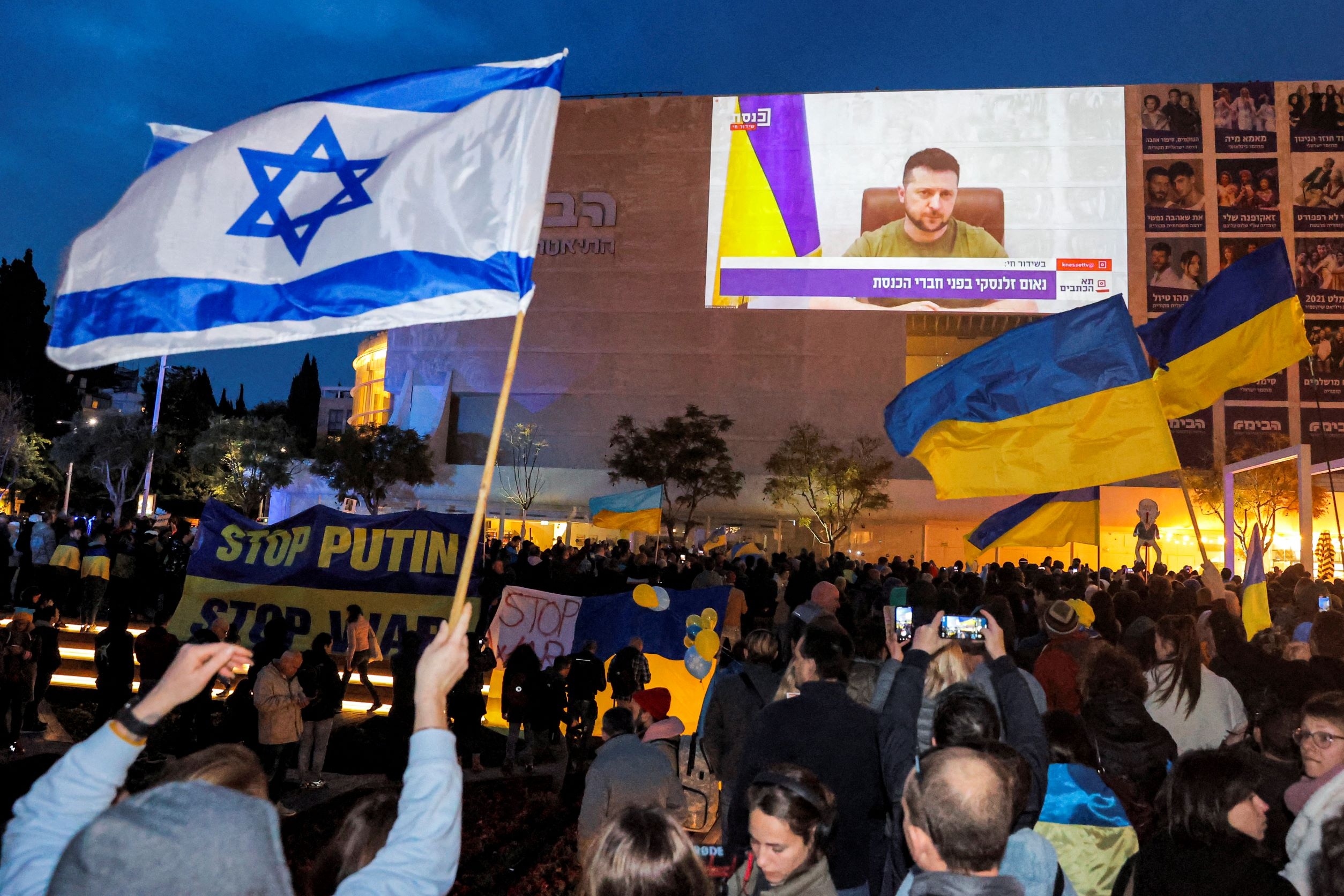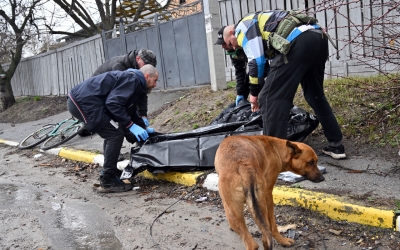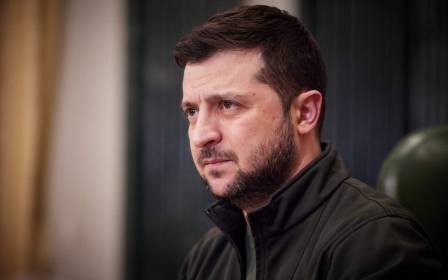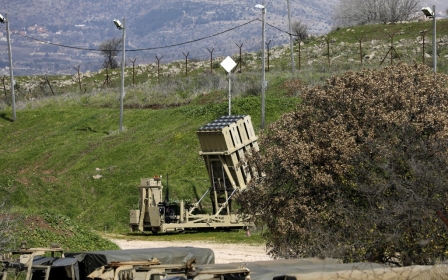Russia-Ukraine war: Zelensky says 'Big Israel' a model for post-war Ukraine

Ukrainian President Volodymyr Zelensky has cited the concept of a "big Israel" as a model for a post-war Ukraine, as the country continues to struggle under the Russian invasion.
Speaking during a briefing to media on Tuesday, the Ukrainian president warned that Ukrainian society would have to behave under a stage of siege even after the end of the conflict with Russia.
'We will become a ‘big Israel’ with its own face. We will not be surprised if we have representatives of the Armed Forces or the National Guard in cinemas, supermarkets, and people with weapons'
- Volodymyr Zelensky
“Ukraine will definitely not be what we wanted it to be from the beginning. It is impossible. Absolutely liberal, European – it will not be like that," he said.
"We will become a ‘big Israel’ with its own face. We will not be surprised if we have representatives of the Armed Forces or the National Guard in cinemas, supermarkets, and people with weapons. I am confident that the question of security will be the issue number one for the next ten years. I am sure of it.”
Despite this, he said the country would not become “an authoritarian state", which he said was "impossible" in Ukraine.
New MEE newsletter: Jerusalem Dispatch
Sign up to get the latest insights and analysis on Israel-Palestine, alongside Turkey Unpacked and other MEE newsletters
“An authoritarian state would lose to Russia. People know what they are fighting for,” he said.
Zelensky, who is Jewish, has long hailed Israel as a model for his country, though he has also been critical of the Israeli government's decision to maintain a relatively neutral line on the conflict.
Millions displaced
The United Nations on Tuesday said more than 7.1 million people were estimated to have been internally displaced by Russia's war in Ukraine, having fled their homes but remained in the country,
The figure issued by the UN's International Organisation for Migration (IOM) is up from the 6.48 million internally displaced persons (IDPs) estimated in a first study by the IOM on 16 March.

"People continue to flee their homes because of war, and the humanitarian needs on the ground continue to soar," said IOM director general Antonio Vitorino.
"Humanitarian corridors are urgently needed to allow the safe evacuation of civilians and ensure the safe transportation and delivery of much-needed humanitarian aid in order to rapidly assist those internally displaced."
Russia invaded Ukraine on 24 February, causing millions to flee their homes - including more than 4.2 million Ukrainians who have left the country entirely.
The IOM conducted its second survey between 24 March and 1 April, and estimated that 7,138,715 people were internally displaced within Ukraine as of Friday.
Fifty-nine percent of IDPs were estimated to be women.
It was estimated that nearly 2.4 million people had fled the Kyiv region, 2.4 million had fled the east, and 1.7 million had fled the north.
The survey found that 41 percent of the IDPs - 2.9 million people - were now located in the west of the country.
It found that more than 60 percent of displaced households had children; 57 percent included elderly members, and 30 percent had people with chronic illnesses.
More than a third of displaced households indicated that they had had no income in the last month.
Middle East Eye delivers independent and unrivalled coverage and analysis of the Middle East, North Africa and beyond. To learn more about republishing this content and the associated fees, please fill out this form. More about MEE can be found here.




